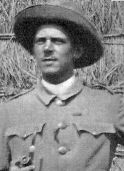Back to search results
Name: PEREIRA, Cecil Edward KCB, CB, CMG (Major-General), Sir

Nee: son of Edward Pereira
Birth Date: 24.7.1869 London
Death Date: 26.10.1942 Kensington
Nationality: British
First Date: 1898
Last Date: 1900
Profession: Appt. Uganda Mil.; joined Capt. J.R.L. Macdonald
Area: Uganda, Fort Ternan
Married: In Kensington 1903 Helen Mary Josephine Lane-Fox b. 1881 Torquay, d. 24 May 1957 Chertsey, Surrey
Children: George Cecil (3 Jan 1904 Marylebone-21 Sep 1976 Burford); Margaret Helen Mary (Stuart-Black) (1 Apr 1905 Hartley Winthey-12 Oct 1982); Anne Julia (Phillimore) (30 Nov 1907 Marylebone-1 Jan 1997 Henley); Anthony Cecil (4 Feb 1910 Marylebone-11 Nov 1918 Bath); Jocelyn Phillip (6 Sep 1920 Williton-17 Nov 1985 Kensington); Maria Therese (Radcliffe) (29 Aug 1916 Chelsea-12 Oct 2005)
Book Reference: North, Debrett
War Service: Coldstream Guards
School: Oratory School and RMC
General Information:
Debrett - entered Coldstream Guards 1890, became Lieut.-Col. 1913, Col. 1915, and Maj.-Gen. 1918; retired 1923; Niger Territory 1896-7 (medal with clasp); Uganda Protectorate 1897-9 (medal with clasp, Brilliant Star of Zanzibar); S. African War 1899-1902 (Queen's medal with two clasps), European War 1914-19 Comdg. 2nd Batn. Of his Regt. 1st Guards Brig. And 2nd Div. (despatches 8 times, Brevet Col. Promoted Maj.-Gen, CMG, CB, French and Belgian Croix de Guerre, Com. Of Order of Crown of Belgium, KCB, 1914 Star, 2 medals); commanded 1st London Div. (TA) 1919-23
North - selected for service with the British South Africa Co. on the northern frontier of the Transvaal, end of Uganda appt. 16/2/1900
Web - Great War Forum - Cecil Edward Pereira was born July 1869, educated at the Oratory School, Edgbaston and commisioned into the Coldstream Guards on 29 January 1890. Promoted Lt 6 Jul 93 and Capt 1 Feb 99. Took part in operations on the River Niger 1897 and awarded East and West Africa Medal with clasp 'Niger 1897'. Served in Uganda 1897-98 and awarded 3rd Class Brilliant Star of Zanzibar and East and Central Africa Medal with clasp 'Uganda 1897-98'. Served in South Africa 1899-1902 and awarded Queen's Medal with 4 clasps and King's Medal with 2 clasps. Promoted Brevet Major 20 Nov 05 and Lt Col 29 Nov 13. Commanded 2nd Coldstream from the outbreak of war and promoted to command 85 Bde in May 15. Wounded in trenches near Vermelles 26 May 15 and reassumed command 10 Jun 15. Wounded a second time on 27 Sep 15 during Battle of Loos. On recovery assumed command of 1 Guards Bde in 1916 and subseuqently commanded 2nd Division. CMG 1917, CB 1918 and KCB 1919. Also awarded Belgian Order of the Crown 3rd Class, Belgian and French Croix de Guerre and was mentioned in despatches eight times. Retired from the Army in 1923 and died in 1942. Of the brigade commanders none was more aggressive than Pereira of the 47th Brigade. George Pereira took over the brigade in January 1916 and led it until November 1917. A catholic, educated at the Oratory School in Birmingham under Newman, and originally commissioned into the Grenadier Guards, Pereira was one of the great characters of the 16th Division. He had previously served as a military attaché in China, was fluent in Chinese, and had made many adventurous journeys in China and Tibet. Known to the men as 'Hoppy' because of his lameness after a riding accident, he was an irascible fire-eater and firm disciplinarian; characteristics he combined with an obvious concern for the welfare of his men. 'Every officer and soldier of his brigade swears by him', one of his battalion commanders wrote. He constantly informed his troops, an officer of the 7th Leinsters recalled, 'that it was our duty to beat up the enemy and give hirn no rest'. Pereira was not without a sense of humour: on Saint Patrick's Day 1916, he told his men that the holy saint's favourite beverage is well known to have been a good glass of sparkling pure water. Moreover, we have it credibly reported that he had a great aversion from government rum. Pereira, as might be expected, took a close interest in raiding, and insisted on thorough investigations of all raids conducted by his brigade, especially those that misfired or failed to achieve their full objectives. His battalions were remorselessly instructed to 'dominate' no-man's land.
Back to search results

